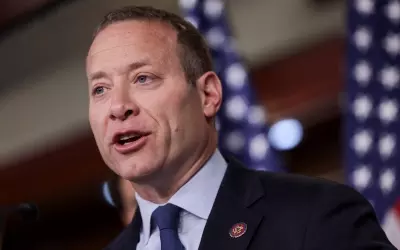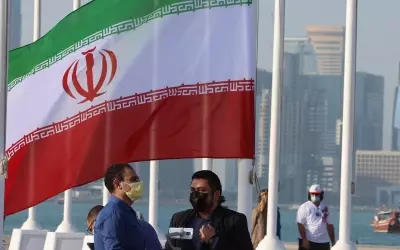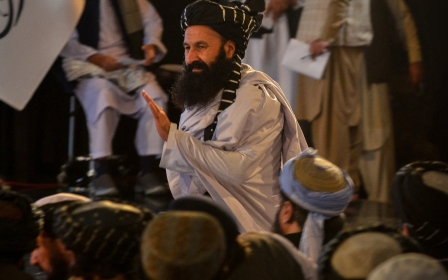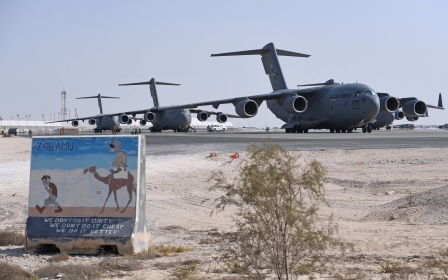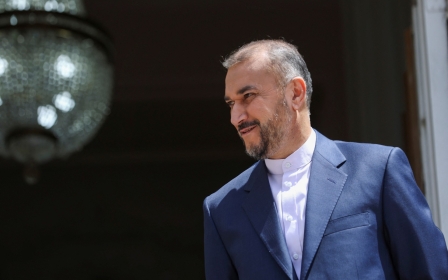Iran nuclear deal: Will Qatar's intermediary role salvage the accord?
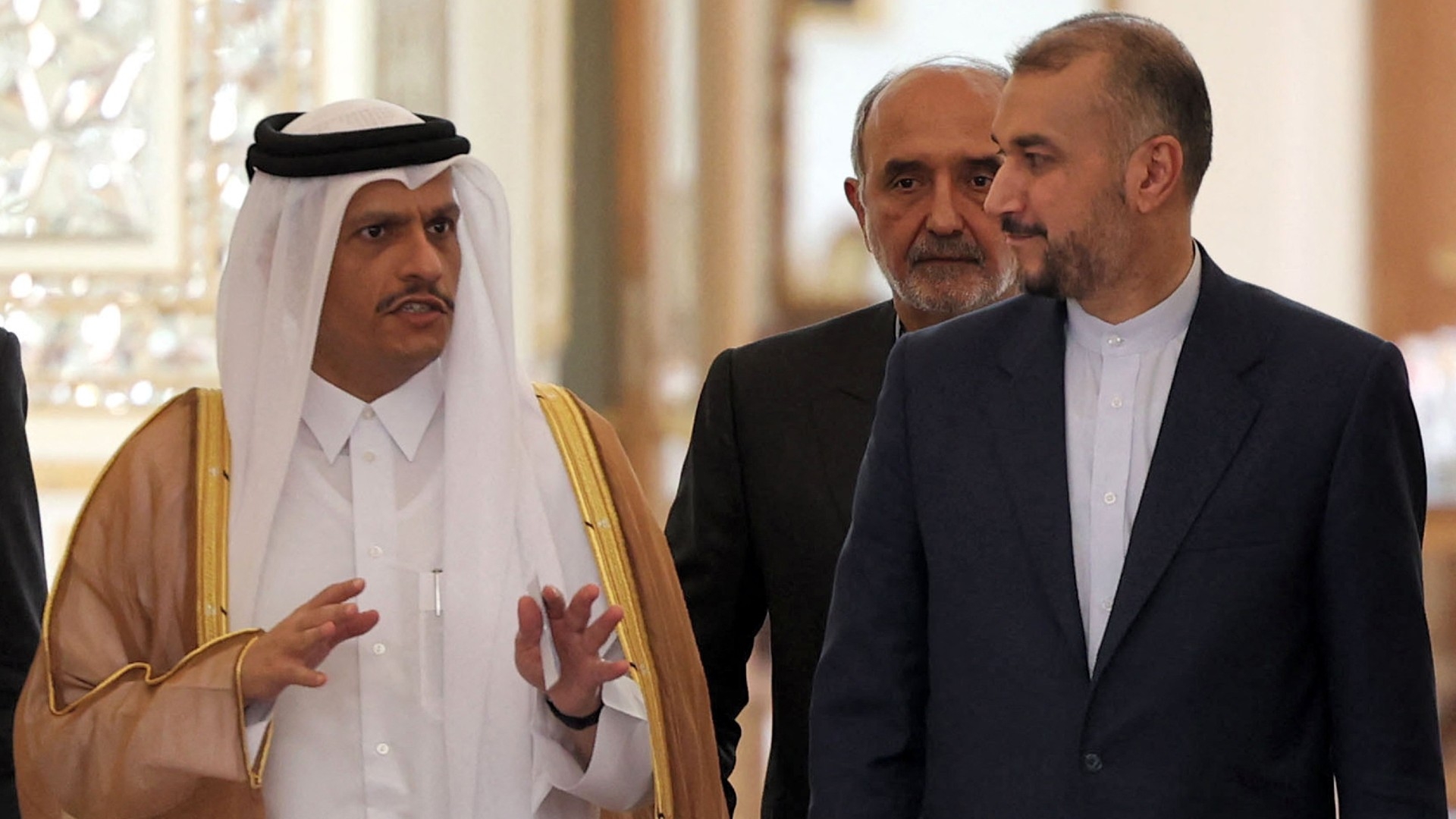
Qatar has played an outsized role in trying to mediate between the United States and Iran, as western powers edge closer to reviving the 2015 nuclear accord.
Maintaining close economic and diplomatic ties with both Washinton and Tehran, Qatar has taken the initiative to replicate the role that Oman had fulfilled in the lead-up to the inking of the Joint Comprehensive Plan of Action in 2015, when it facilitated indirect and then direct talks involving the two nemeses.
The Islamic Republic confides in Qatar as a reliable strategic partner and one of the few Persian Gulf nations that are not on adversarial terms with Tehran. Bilateral trade has been picayune, and in 2021 was capped at $200m.
Yet on multiple foreign policy issues, Tehran and Doha sing from the same hymn sheet and share intimate views on the Muslim Brotherhood, the Israeli-Palestinian conflict and the future of Afghanistan.
Together with Oman, Qatar is the only Gulf Cooperation Council (GCC) member that has usually sought to cushion the blow of the bloc's typically fiery statements against Iran.
The revival of the JCPOA is contingent on the US and Iran resolving their differences and eking out an understanding on how to restart implementing the deal.
Experts say the back-and-forth will be a long and drawn-out affair, rendering the prospects of an understanding elusive.
Earlier this week, Iran's response to the US decision on the EU's draft text for the JCPOA restoration was labelled "unconstructive" by the US State Department. Here, Qatar is seeking to reassert itself as an incubator.
On Sunday, Mohammed bin Abdulaziz Al-Khulaifi, Qatar's assistant foreign minister for regional affairs, travelled to Tehran to meet Ali Bagheri Kani, Iran's lead negotiator in the JCPOA talks.
Little has been disclosed about what the two diplomats discussed. But the Qatar News Agency (QNA) quoted Khulaifi as saying that Qatar aspires to see an agreement between Tehran and Washington, which it judges to be in the "interest of the security and stability of the region".
On 25 August, one day after the US replied to the European Union on its proposal for the JCPOA revival, Iran’s Foreign Minister, Hossein Amir-Abdollahian, held a phone conversation with his Qatari counterpart, Mohammed bin Abdulrahman Al-Thani, and the trajectory of the nuclear deal was a central theme of discussion.
Qatar as a hub for dialogue
Qatar is unhappy with the laggard pace of Iran-US diplomacy and is raising the stakes by endeavouring to convince the hardline administration in Tehran to make compromises and finalise a deal most regional players believe averts a military conflagration engulfing the region and a hypothetical nuclear arms race.
In recent months, there have been several meetings and phone calls between the Iranian and Qatari officials, and the common denominator of all communications has been the imperative of a mutual return to compliance with the nuclear deal, which former US President Donald Trump walked away from in 2018.
Qatar was one of the only five countries that Ebrahim Raisi travelled to in his first year as president. The emir of Qatar, Sheikh Tamim bin Hamad Al-Thani, conferred with Raisi in Tehran twice, predominantly on missions to diffuse Iran-US tensions.
'Qatar will likely have a continued outsized diplomatic presence for some time to come'
- Ali Ahmadi, Geneva Center for Security Policy
An Iranian political scientist draws distinctions between Oman and Qatar in their approach to mediating the Iran-US diplomatic showdown.
"Omanis are more experienced facilitators that do not easily get involved in any sort of dialogue which is not necessarily guaranteed to be successful or has a certain strategic value," said Abdolrasool Divsallar, a visiting professor of Middle Eastern studies at Universita Cattolica del Sacro Cuore in Milan.
"But Qatar is more like an entrepreneur in global politics that is ready to invest in more baskets of issues, is more ambitious to expand its role and prepared to engage in different efforts that may not create immediate results.
"Oman is a slow actor that is not much interested in engaging in track 2 or track 1.5 diplomacy, while Qatar’s importance is that it is interested in being transformed into a hub for such dialogue between Iran and the United States."
Relations between Iran and Qatar are intuitively bolstered by the fact that they share the world’s largest gas field, namely the South Pars/North Dome gas field. It holds some 50.97 trillion cubic meters of in-situ gas and an estimated 50 billion barrels of condensates.
Also, during the Gulf diplomatic crisis of 2017-2021, when Saudi Arabia, the UAE, Bahrain and Egypt ruptured diplomatic relations with Qatar and were joined by several other Arab nations in imposing economic sanctions on Doha, Iran openly sided with Qatar and allowed its airspace to be used by Qatar amidst a crippling air, land and sea blockade.
A US-Iran war would affect Qatar, too
Experts say Qatar's vision of patching up frosty relations between Tehran and Washington should be seen against the backdrop of the Arab nation’s generally proactive assignment as a diplomatic broker.
"Qatar's mediation efforts are not limited to Iran and the US, [rather] they also include efforts to reach peace agreements between the Chadian military government and opposition groups, between Hezbollah and the Lebanese government, Darfur and Sudan, the Taliban and the US, and even the Houthis and former Yemeni president Ali Abdallah Saleh's government," said Noha Aboueldahab, an assistant professor of Georgetown University in Qatar.
"All these peace mediation efforts form an important part of Qatar's foreign policy as a so-called small state. Its active role as mediator in these conflicts makes Qatar an indispensable actor regionally and internationally," she told MEE.
On 28 June, Doha hosted a new round of indirect Iran-US talks. It was the first occasion negotiations were moved out of Vienna since they first began in November 2021. Although expectations were high for a breakthrough, the two sparring parties remained stuck.
All the same, Qatar volunteering to function as an intermediary was remarkable, harbingering a more serious role in the future.
"Qatar became a bit of a focus regarding JCPOA issues when it seemed that the Islamic Revolutionary Guard Corps issue would be the single most important obstacle to an agreement. Since then, the Europeans, who are the primary intermediaries between Iran and the US, have come back to centre stage," said Ali Ahmadi, an executive fellow at the Geneva Center for Security Policy (GCSP).
"Qatar will likely have a continued outsized diplomatic presence for some time to come because it has ventured to have a productive relationship with all actors," he told MEE.
Hostilities between Iran and the US have been deep-seated and mushroomed over the past four decades, and as things stand, show little signs of dissipating.
But like Iran's other major Arab partners Oman and Kuwait, Qatar has strong motives to moderate frictions, and due to its privilege of genial ties with both Tehran and Washington, is better positioned to push for detente.
"Qatar has obvious interests in ending the hostilities between Iran and the United States or at least bringing the sides to a kind of modus vivendi," said Hamidreza Azizi, a visiting fellow at the German Institute for International and Security Affairs (SWP) in Berlin.
"On the one hand, Qatar is a close US partner in the region hosting the US forces and is now establishing close relations with other Nato members, and on the other hand, it is Iran's neighbour.
"Like most other GCC countries, if a war happens between Iran and the United States, Qatar is there also to be negatively impacted. That's one of the main reasons Qatar wants to prevent that scenario."
Middle East Eye propose une couverture et une analyse indépendantes et incomparables du Moyen-Orient, de l’Afrique du Nord et d’autres régions du monde. Pour en savoir plus sur la reprise de ce contenu et les frais qui s’appliquent, veuillez remplir ce formulaire [en anglais]. Pour en savoir plus sur MEE, cliquez ici [en anglais].


